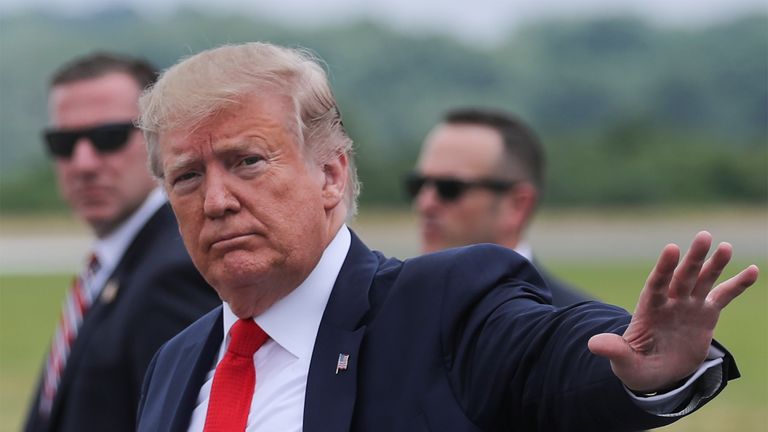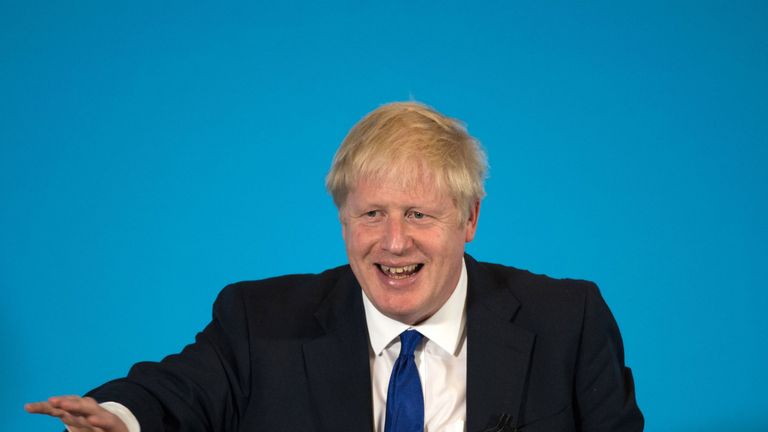UK will suffer if Sir Kim Darroch is replaced by political appointee
Ever fancied yourself as a British ambassador?
The Foreign and Commonwealth Office is actively recruiting for vacancies in South Korea, Kuwait, Luxembourg and Gibraltar.
Anyone can apply, diplomatic experience or not.
And there will almost certainly be another job opening up to non-career-diplomats very soon – that of ambassador to the United States.
Though it’s more likely someone handpicked by the next prime minister, rather than recruited through an open competition, will fill this plum post.
I had already picked up on mutterings about such a move before the leak in The Mail On Sunday over the weekend of less-than-flattering memos back to London about President Donald Trump from our incumbent man in Washington.
The public release of these confidential assessments from Sir Kim Darroch – frank, well-sourced and uncompromising to help shape UK understanding of the Trump administration – is sure to make the shift to a political appointee for this top posting all the more likely.
Sir Kim’s time as ambassador is up anyway in January. Normally a replacement for such a key post would have been decided a year in advance but that has not happened this time because of the political turmoil amid the Brexit chaos.
The prospect of a political appointee stepping into his shoes is not going to go down well at the Foreign Office, where the potential of one day being appointed to represent your country in the US is one of the ultimate rewards and recognition for decades of public service – an important factor in retaining top talent.
But Boris Johnson, should he, as expected, win the race to become prime minister, will probably decide it is more important to have a politically loyal lieutenant at the helm at the embassy in Washington than the person with the best diplomatic credentials.
If this happens, we will be all the poorer for it.
Not only because Britain benefits from having its most accomplished diplomats and civil servants in the top postings around the world.
But also because punishing the diplomatic service for doing its job – speaking unvarnished truth to power, no matter how uncomfortable – would send a significant chill throughout the whole of Whitehall to neuter further their language in all official communications.
This had been happening long before Sir Kim’s internal assessments on Mr Trump were turned into headline news.
Diplomats throughout the foreign service – similar to fellow civil servants across Whitehall – have become more cautious about what they commit to paper or official electronic record precisely because of the danger it could be leaked to the media or hacked by a foreign state.
Instead, increasingly, assessments are given verbally in face-to-face meetings to reduce the threat of sensitive information seeping into the public domain.
Messages can also be relayed via internet messaging devices with end to end encryption and a self-delete timer, erasing all electronic trace.
We could end up in a situation 30 years from now when the National Archives releases the latest batch of confidential government files – a process that until now offers a rich, historic insight into top level policy making, private discussions and challenging decisions from the past – only to reveal a collection of bland, neutered remarks with minimal context from our top officials.
Tobias Ellwood, a defence minister and former foreign office minister, believes people will be concerned about the impact of the Darroch leak on how future diplomatic cables are crafted.
“We have a Rolls Royce diplomatic service, arguably the best in the world, thanks to its global reach, quality of communications and integrity of our secure reporting structure,” he said.
“If the latter is seen to be compromised it not only hinders both government and diplomatic posts from doing their job but is deeply unhelpful in furthering bilateral relations.
“There are no British winners here. The US is our most valued and important ally. We rub shoulders with them in the five eyes [intelligence] community, in the battlefield and on the factory floor.
“It’s shocking to believe any British passport holder could be so unpatriotic as to deliberately leak diplomatic cables and put self-interest above country.”
Source: Read Full Article




